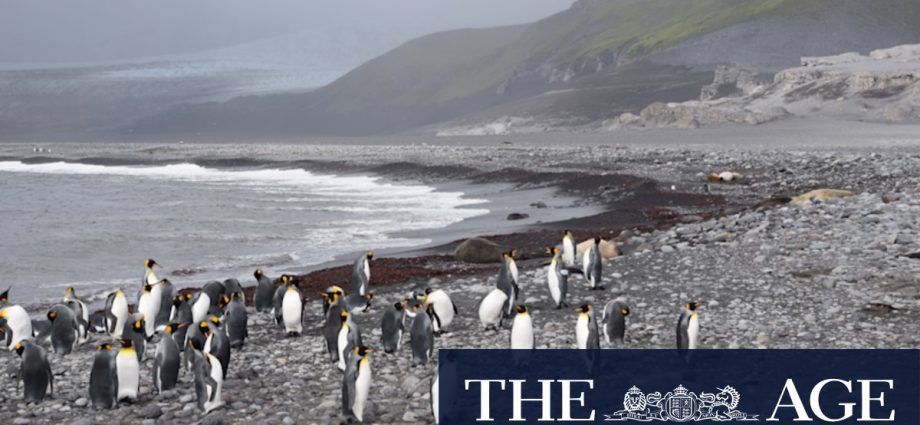Norfolk Island residents Jesse Schiller and Rachel Evans found the tariffs more amusing than concerning.
“We are five by eight kilometres in the middle of the ocean – there’s no economic sense to having a manufacturing industry here,” Schiller said. “I think it’s certainly just entertainment at this point.”

Norfolk Island residents Rachel Evans and Jesse Schiller aren’t concerned by US President Donald Trump’s tariffs on the island.
Evans said the newfound publicity gained for Norfolk Island was an unlikely upside from Trump’s tariffs, noting it could result in significant gains for its tourism-based economy.
“The smile on my face is there because I’m so grateful it won’t actually affect any businesses here, so that really is a silver lining,” Evans said.
“It would have been a very different reaction if we actually did have an exporting industry here, but the fact that no one will be negatively affected, if anything we’re going to be getting press in general, is a good thing – I feel relieved, you just don’t know, in the current world environment, what end of the stick you’re going to be on.”
Loading
Norfolk Island administrator George Plant, who serves as the federal government’s representative on the island, said he was among the locals “scratching our heads” following the tariff announcement.
As an external territory of Australia, Norfolk Island is represented in federal parliament by David Smith, whose electorate of Bean includes Canberra’s southern suburbs.
Smith said the 29 per cent tariff whack Trump delivered to the Pacific island, population around 2000, was “very strange”, not least because of Norfolk Island’s deep links with the US.
“It’s actually got a genuine American connection there, which makes it probably even more surprising that you’d have a differentiated tariff approach to Norfolk Island,” Smith said.
American whalers of the 1800s made frequent stops on Norfolk Island during their years-long voyages around the Pacific Ocean and many stayed to start families. Many on the island still celebrate Thanksgiving Day.
“Have the Americans just got confused about Norfolk Island, not realising it’s actually part of Australia?” Smith asked.
Prominent British historian Simon Schama noted the Heard and McDonald islands tariff and what it might mean to its fauna.
“This just about sums it all up – 10 per cent tariff on Heard and Mcdonald islands, which are completely unpopulated. Bit hard on the penguins though to have their guano tariffed,” he said on X.
The Australian Antarctic Division confirmed there are no people on the two islands at present.
The two islands were not the only penguin- and seal-friendly parts of the globe to face a tariff impost.
The Falkland Islands, part of the United Kingdom, is facing a 41 per cent tariff compared to the 10 per cent tariff on the UK.
It’s not just the frozen south. Svalbard and Jan Mayen, two ice and snow-covered parts of Norway, are also facing 10 per cent tariffs.

Facing a Trump tariff – a reindeer of Svalbard.Credit: Jan Hvizdal
Svalbard is home to about 3000 people, polar bears and reindeer plus one of the world’s few seed banks – a genetic back-up for thousands of varieties of edible plants.
Cut through the noise of federal politics with news, views and expert analysis. Subscribers can sign up to our weekly Inside Politics newsletter.


